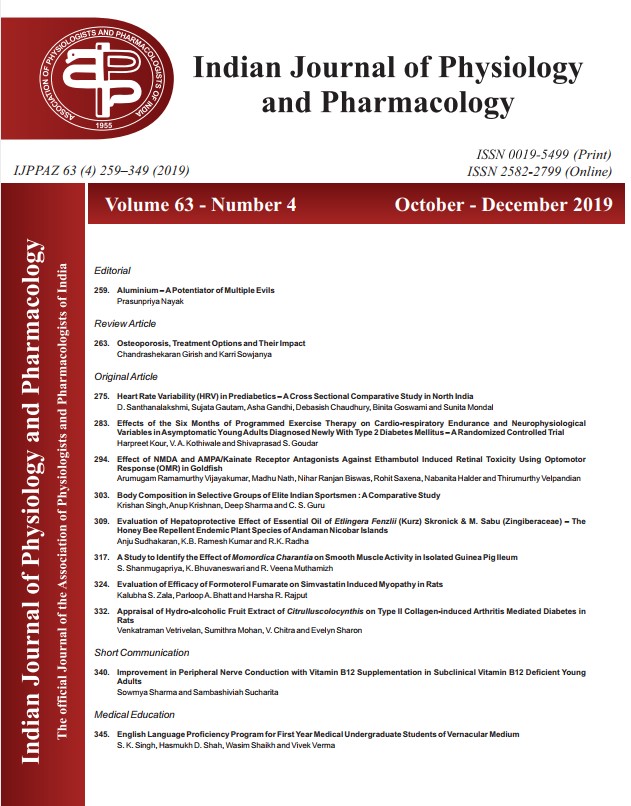An “English Language Proficiency Program (ELPP)”
was designed by Pramukhswami Medical Colege,
Karamsad in collaboration with H.M. Patel Institute
of English, Sardar Patel University, V.V. Nagar.
Validation of this program was done by internal as
well external faculties and changes were made
accordingly. Program was implemented after the
approval of our institute’s Human Research Ethics
Committee (HREC).
The Program consisted of three steps. The first step
was to evaluate the baseline English language
proficiency. The evaluation was done by pre-intervention test for all the students of the First
MBBS Academic Year 2010-11. A total of 86 students
took the test, of whom 38 students were from Gujarati
medium (vernacular) and 48 students were from
English medium. The test was designed to assess
student’s English proficiency with reference to
Grammar, Vocabulary, Comprehension, Reading and
Writing skills. Each component was tested for 10
marks or score with total 50 marks or score. After
the test only 38 students from Gujarati medium were
ready to join 40 hours English Language Proficiency
Programme and 48 students from English medium
had refused to join the programme. All 38 students
from Gujarati medium were recruited as participant
for the study after their voluntary consent.
The second step was implementation of English
Language Proficiency Programme to the participants.
ELPP was a 40 hours’ program which was
implemented during the first semester of the First
MBBS course. During the intervention, students were
initially introduced to the English language by the
faculty members who are coming from H.M. Patel
Institute of English, Sardar Patel University, V.V.
Nagar, Anand, Gujarat, India for a period of 9 hours
over a period of 3 weeks. During these period
participants were taught about the basic of learning
grammar and vocabulary (English and Medical). This was followed by practice sessions for the participants
for understanding written and spoken English. This
happened for a period of 21 hours spread over to 15
weeks. The practice sessions consisted of listening
to Audio-clips, watching Video-clips, doing group
activities. The students were also given home
assignments for a period of 10 hours to improve their
reading and writing skills by asking them to write
short essays on predetermined topics. During the
whole intervention, students were provided with
resource materials which included Oxford practice
Grammar Book for self-reading and practice,
Appendix of medical terms and word roots for medical
subjects of First MBBS i.e., Anatomy, Physiology
and Biochemistry (7).
The intervention was followed by the third step
wherein post-intervention assessment of the students
was conducted. The post-intervention test was similar
to the pre-intervention test in terms of objectives
and content. After the post-intervention assessment
of the students, a qualitative feedback on ELPP was
obtained from the participating students.
Statistical Analysis
The results of pre-intervention test and post-intervention test were compared statistically using the student paired t-test for evaluation of English
language proficiency programme.


